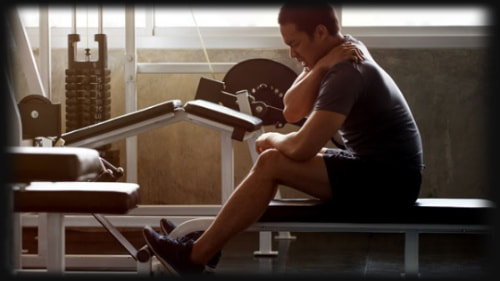|
We all hold different values. We all exist in different circumstances. We all have different requirements to be & feel in good health. So why is it that our health & fitness is so often treated as a commodity - something to be profited from with little regard to the individual well-being of the consumer? It’s everywhere you look; generalised training programmes, diet plans designed for the masses. Across so many aspects of life we’re sold the story of individuality. Yet where it really matters - in health - it seems not to exist. The individuality of our well-being is slowly being taken away from the conversation. And we’re paying for it. THE UNIQUENESS OF THE INDIVIDUALNow this might sound like I’m about to go off on a tangent that you’d hear from your primary school teacher. That’s not quite my intended direction. By saying “The uniqueness of the individual”, I’m referring to our genetic make-up & environmental circumstances. What I’m not saying is “we’re all special” - as warm-hearted a message it may be, it’s just not the point I’m trying to make here. It’s these differences that explain why that which may be an effective approach for one individual, might not be for another. Yet the attempted replication of the actions of others is rife throughout our society - often to our own harm. So, what are some examples of our individuality being ignored in the health & fitness space? One example is copying workouts you’ve seen your fitness inspiration do on instagram. Or worse, purchasing their mass generalised workout programmes. There's a couple of issues associated with this. First, there's the false hope; you might believe that by following their workout approach, to the T, you'll end up with identical results in yourself - and that it will be of benefit to your well-being. Wrong. Reason being, as I briefly mentioned earlier, we’re all genetically unique. Whilst our body composition, muscle mass, & other physical features can be manipulated through lifestyle, they also have a huge genetic component. Even if you imitated Anthony Joshua’s training programme for 10 years, it’s highly unlikely you’ll end up 6’5, 250lbs, ripped, & a heavyweight world champion. Secondly, enjoyment. This is a key factor when it comes to exercise. Reason being, enjoyment directly correlates with adherence. Each of us enjoy different types of activity, therefore it only makes sense to do that which we enjoy. If you attempt to replicate someone else’s training, but hate the process of doing it, then not only will you be miserable, but I can guarantee you’ll end up packing it in pretty quickly. Find activity that leaves you smiling, even if it’s smiling in pain. Finally, & arguably most importantly, by adopting someone else’s training approach, we expose ourselves to all sorts of risks with regards to injury & overtraining. Take the HIIT workouts all over instagram for instance. For a highly-trained athlete, doing HIIT workouts 4-5 times per week may be manageable (whilst not optimal). For the non-trained, out of shape individual, this is not only going to be incredibly challenging, but it’s also going to increase their risk of injury due to fatigue & improper technique, whilst also leading to over-training, worsening stress, leading to detrimental downstream effects. Adopting the approach of another individual, without factoring in any physical limitations you may have is a recipe for disaster. That brings us nicely on to the topic of nutrition. Similar to exercise, diet is very much a case of individual need & preference. Certain diets that work wonders for others might not be effective or may be unsustainable for you. This could be due to genetic factors related to metabolism or specific intolerances/allergies. It could also come down to circumstances - which often play a key role in nutrition. For instance, our busy, stressful, city-based office job could mean that we aren’t able to make fresh & colorful lunches, like the “social media influencer” we obsess over. That’s not to say that we can’t stay on top of our nutrition through different means, but it’s important to recognise what’s realistic for us given our individual situation. Just like exercise, enjoyment is also a key component when it comes to diet. Adopting highly restrictive approaches - that may well have been highly successful for others - might not work for you. Those who enjoy success with this approach likely have completely different attitudes towards food than you. For example, maybe you struggle to go the morning without breakfast, - whilst those successful can happily go until the afternoon without eating - but the diet you're attempting requires a morning fast. Chances are, you’re going to give up on that approach pretty quickly, experience demotivation, & resort to your old ways as a result. It’s these individual differences that can explain why one approach can be highly successful for some, but futile for others. TAKE AN INDIVIDUAL APPROACHDon’t fall victim to the generalised approaches to well-being. Of course they may well be effective for a specific population with specific goals - but wouldn’t you rather be treated as the individual that you are - as opposed to just another sales figure? This is one of the biggest in the health & wellness/fitness arena. The commodification of health. That’s not to say it should be a non-for profit industry across the board - we all have bills to pay. But, in an industry of such significance, the small details matter, meaning an individualised approach is essential. Of course, we're not all in a fortunate enough position to be able to invest in a personalised service. If you can, then this will of course optimise results, save valuable time, & ensure the upmost personal approach. But, even if you're unable to invest financially, that doesn’t render you incapable of investing time to decipher a sustainable & beneficial approach, based on what works for you. FIND WHAT WORKS FOR YOUAs I’ve expressed throughout, what’s key is to recognise that we ought to be doing that which is optimal, most appropriate & most sustainable for ourselves. This means factoring in for our genetic/individual differences, our circumstances & what matters most to us. These differences mean that generalised approaches simply won't be optimal. Investing in a training programme which fails to cater for any individual needs & limitations will never be as beneficial or safe as a training programme tailored to the individual. Situational, genetic, & lifestyle factors can often make it impossible to adopt an identical approach to wellness as our idols. It's important to accept this reality.
Instead, find an approach that is effective, sustainable & works for you. By doing so, you're so much more likely to maintain consistency, improve well-being, and achieve results. Chasing unrealistic & unsustainable approaches will never lead to long-term consistency. And that really is the name of the game. |
Author
Christian Lawal Personal Training.
Personal training in Tunbridge Wells, Tonbridge & Sevenoaks. Archives
January 2024
|





